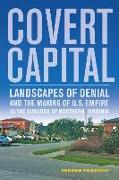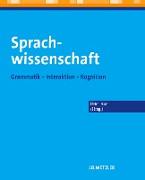Covert Capital
BücherAngebote / Angebote:
Amongst the book’s many achievements, it provides an exemplary analysis of the myriad ways in which everyday, intimate, and ‘local’ circuits of power have been deeply imbricated in the ongoing rollout of imperial geopolitics since the mid-20th century."—Jamie Peck, Progress in Human Geography"This spatial and cultural analysis of seemingly innocuous suburban sprawl offers a compelling picture of a nation that could both deny and pursue Empire simultaneously. It is an example of American Studies at its very best."—Ron Robin, Diplomatic History "The book is a tour de force."—Christopher Capozzola, Buildings and Landscapes "Loaded with stunning insights and fascinating revelations about a wooded swath of land just outside the nation's capital, Covert Capital is a model of interdisciplinary scholarship, unearthing the startling connections between landscape, empire and conspiracy." —Eric Avila, author of Popular Culture in the Age of White Flight: Fear and Fantasy in Suburban Los Angeles "Brilliantly charting the myriad corridors stretching between Northern Virginia and the far-flung corners of U. S. intervention, Andrew Friedman’s Covert Capital introduces readers to some of mid-to-late twentieth-century suburbia’s open secrets: autocratic allies ensconced in leafy cul-de-sacs, other nations’ futures worked out at poolside, cocktail chatter crossing CIA assets with real estate assets. In problematizing the boundaries between the foreign and the domestic, and the political and the personal, and in its subtle, interdisciplinary readings of spatial practice and architectural form, Covert Capital is essential reading for scholars seeking to interpret the landscapes of American global power." —Paul A. Kramer, author of The Blood of Government: Race, Empire, the United States and the Philippines “In this highly innovative history of the U.S. empire, Andrew Friedman carefully delineates the suburban architecture that shaped even as it camouflaged America's global reach. In tracing the emergence of Northern Virginia as the nation's 'covert capital, ' he relocates the foreign in the domestic, showing the local sources of imperial power and the quotidian making of its multi-cultural agents. Ever attentive to the ironies of empire, Friedman deepens our understanding of American power by revealing the material designs of its elaborate disavowals.“ —Vicente L. Rafael, author of The Promise of the Foreign: Nationalism and the Technics of Translation in the Spanish Philippines
Folgt in ca. 10 Arbeitstagen




